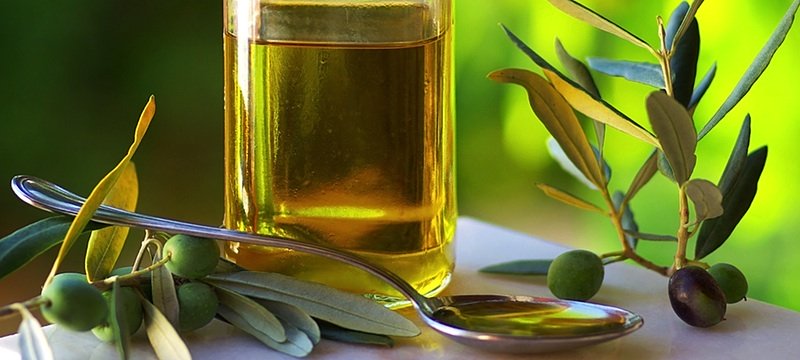Olive oil strengthens the immune system, helps protect against viruses, and as also effective in fighting against diseases such as:
1. Cancer
Olive oil contains oleocanthal, which has been shown to work like ibuprofen. It reduces inflammation and can decrease the risk of breast cancer and its recurrence. About 1.75 ounces (50 grams) of olive oil in your daily diet equals roughly 10 percent of the recommended adult dose of ibuprofen. Olive oil may also help you from developing skin cancer, known as melanoma. Olive oil is packed with antioxidants, which are the body’s defense against free radicals, molecules damaged by excessive sun exposure and other environmental hazards which can damage healthy cells and lead to cancerous tumor formation.
2. Diabetes
According to the International Olive Council, an olive-oil-rich diet is not only a good alternative in the treatment of diabetes, it may also help to prevent or delay the onset of the disease.
3. Blood pressure
It has been demonstrated that adding olive oil to a diet that is not altered in any other way clearly helps to lower blood pressure, an effect that seems specific to olive oil.
4. Heart disease
In the United States, producers of olive oil may place the following restricted health claim on product labels:
Limited and not conclusive scientific evidence suggests that eating about 2 tablespoons (23 g) of olive oil daily may reduce the risk of coronary heart disease due to the monounsaturated fat in olive oil. To achieve this possible benefit, olive oil is to replace a similar amount of saturated fat and not increase the total number of calories you eat in a day.
5. Cholesterol
Use olive oil, a heart-friendly oil, instead of saturated fat to reduce total cholesterol levels. 100 grams of extra virgin olive oil contains the following nutrients:
- Saturated fat: 13.8%
- Monounsaturated fat: 73%
- Omega-6: 9.7%
- Omega-3: 0.76%
- Vitamin E: 72% of the RDA (recommended daily allowance)
- Vitamin K: 75% of the RDA
6. Obesity
Like other fats and oils, olive oil is high in calories (9 Kcal per gram), which might suggest that it contributes to weight gain. But experience reveals that there is less obesity amongst the Mediterranean peoples, who consume the most olive oil and are regarded as belonging to the world’s healthiest populations.
7. Healthy Skin
In addition to polyphenols, olive oil has a large proportion of vitamins A, D and K, as well as vitamin E, the main source of protection against the free radicals that produce cell oxidation. This makes it a good aid in specific therapies to treat skin disorders such as acne, psoriasis and seborrheic eczemas
8. Digestive System
Olive oil is also known to be gentle on the digestive system, and even may help prevent gallstones and soothe ulcers. Good quality olive oil contains valuable vitamins and nutrients, and it is loaded with antioxidants, which many believe help protect the body from cancer. Olive oil facilitates overall digestion and absorption of nutrients, along with crucial fat-soluble vitamins.
9. Rheumatoid Arthritis
Although the reasons are still not fully clear, recent studies have proven that people whose diets contain high levels of olive oil are less likely to develop rheumatoid arthritis.
10. Osteoporosis
A high consumption of olive oil seems to improve bone mineralization and calcification. It boosts calcium absorption and thus plays an important role in aiding persons who already suffer from osteoporosis and in preventing the onset of this disease.
Some important tips for using Olive Oil:
Extra virgin olive oil comes from the first pressing of olives, and retains the most flavor and aroma. Most premium brands are also advertised as “cold pressed,” meaning they aren’t heated up beyond room temperature during processing. Unsurprisingly, high heat can damage the flavor and nutrients in the oil. Virgin olive oil generally comes from the second pressing. Cheaper brands sold as regular or pure olive oil are made with chemical refining and filtering, which standardize and neutralize flavors and acid contents. They have lower nutrient levels as a result.
- Avoid consuming more in quantity.
- Olive Oil can be kept fresh for two years.
- Never apply it on open wounds with prior consultation.
- Store Olive Oil in cool and dry place and always away from heat, air and sunlight.
- Always smell its aroma first to increase its taste.
- Store olive oil in a dark glass bottle.
- Don’t use more amounts of olives during pregnancy/breastfeeding.
